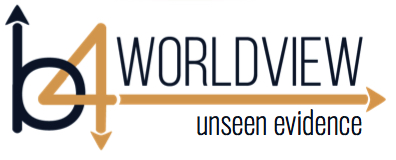
Key Thought for this session:
“Without a compass, the journey is futile.”
Welcome to Session 8: which is titled: “Finding truth.” As you may remember, my name is Joseph and I will be your instructor for this session.
We have been making great progress! You are doing a great job working through it! ... And we’re getting close to finishing this course. So, as we get into this session, let me tell you about a friend of mine.
He is now in his 70's. He has had a successful life... according to the world's standards. And now while his body is beginning to fail him, he struggles even more with emotional anxiety. When I have asked him what troubles him most, he responds, "I just want to know what is true." When I ask him what he is doing about that challenge, he says, "I don't even know where to start." In a sense my friend had lived his entire life, but has just begun to recognize what will be our session 8 memory principle: “Without a compass the journey is futile.”
At b4worldview we are hopeful about the prospect that when you finish this course you will never again have to say, “I don’t know where to start.” And remember, you are not alone in the quest for truth. In the 2016 US Presidential election, the New York Times created an app called “Who’s telling the truth?” You see, everybody wants a view of the truth and looks for help on how to find it. In this session, we hope you will discover the truth about finding truth. Without this ability, you are at the mercy of sources like the New York Times ...or some college professor... or some social media pundit who thinks they know the truth about truth.
We have explored the key topics of knowledge, truth and faith in great detail. We’ve discussed what they mean and how they relate to each other. You might be wondering, “What else can you possibly say on this subject that you haven’t already said?” Good question. But before I tackle that challenge, let’s quickly review the points we have made so far.
Number one: Knowledge is not truth.
Two: Knowledge has no impact on our life until we act on it.
Three: We cannot fully trust eido knowledge without sufficient gnosis knowledge.
Four: We act on knowledge that we actually trust to be true.
Five: The consequences of our faith (acting on what we know to be true) depends on the validity of the target of our faith, not the sincerity of it.
Six: Is it true because we believe it, or should we believe it because it’s true?
And finally, Seven: How DO we find “true north”?
Now, the sixth point sort of sums up the whole list. If you do not get anything else from this list, consider where you stand on point 6. Mainstream philosophy and similar sciences believe that “reality is what we can observe and demonstrate to be true.” These approaches use observable objects to explain abstract objects, or things we cannot observe. From the perspective of this particular core assumption, it is inferred that what we cannot observe exists only as a reflection of a known physical reality. This core assumption usually follows from people who see their identity mainly through the physical world. The flip side of this core assumption is the second part of point six. That is, what we see as abstract is actually what is real. Many objects we observe with our physical senses act as a pointer to or a shadow of what is real. From the perspective of this core assumption, reality is the realm where objects exist and are true without bounds – that is, they are timeless. Reality is comprised of objects that are true all the time - regardless of what people think they see. People who operate from this core assumption usually have a spiritually based identity. So, you see, there are really only 2 core assumptions about reality--whether a person identifies primarily in the physical world or primarily in the spiritual world is very important and heavily influences one’s worldviews.
Take some time to think and review these points, and when you’re ready, hit continue to move on in our study of “finding true north.”